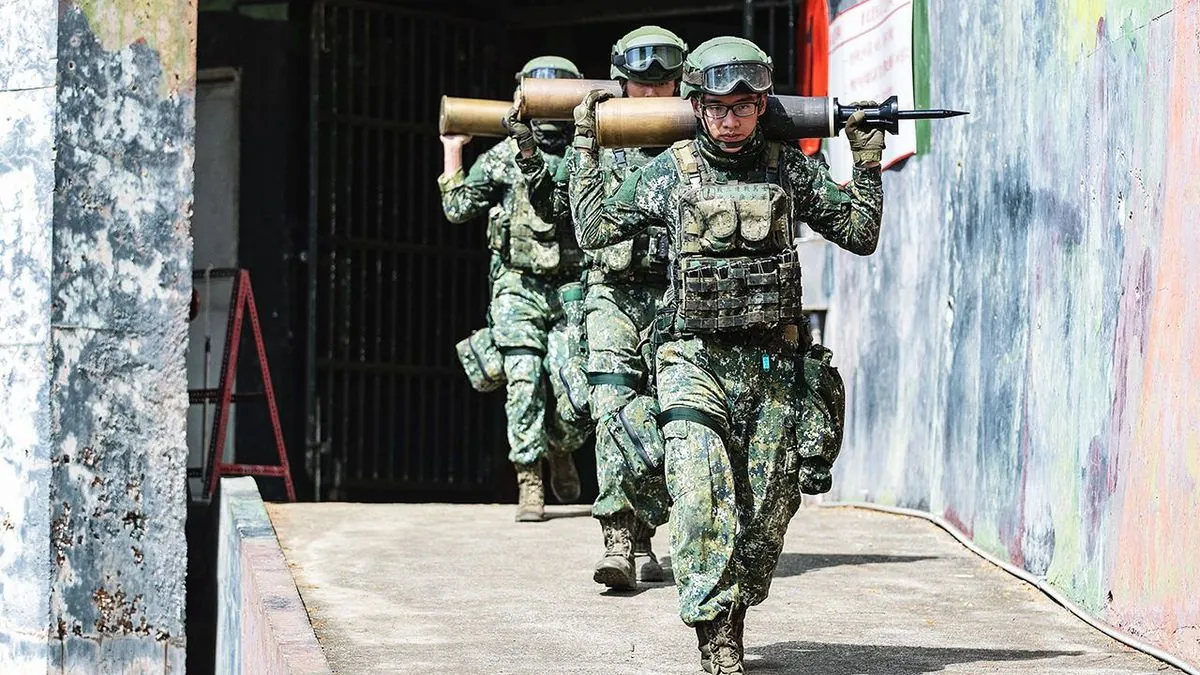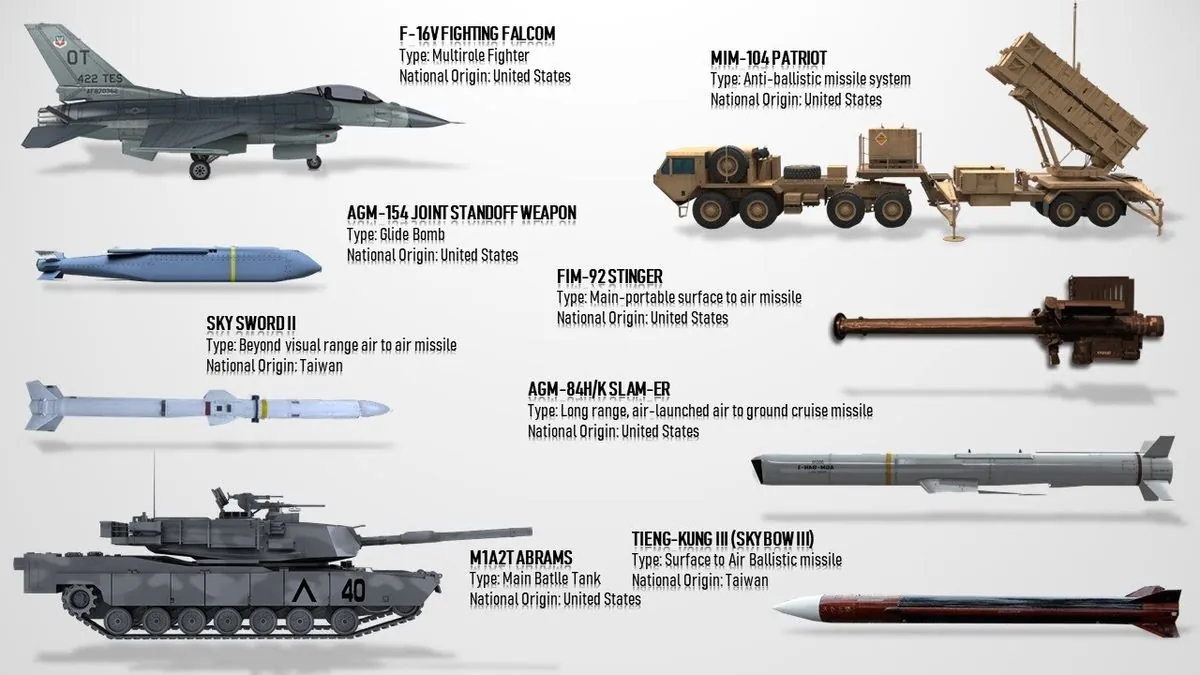Taiwan Boosts Defense Budget to Record High Amid Regional Tensions
Taiwan plans to increase its defense budget to T$647 billion for 2025, focusing on self-reliance and partnerships. President Lai emphasizes peace amid rising tensions with China.

Lai Ching-te, Taiwan's President, announced on August 6, 2024, that the island's defense budget is set to reach an unprecedented T$647 billion ($19.74 billion) for the year 2025. This significant increase reflects Taiwan's commitment to enhancing its defensive capabilities and fostering cooperation with democratic allies.
The announcement comes amid escalating tensions between Taiwan and China. The People's Republic of China continues to assert its claim over Taiwan, which has been governed independently since 1949. Despite these challenges, Taiwan, with its population of approximately 23.5 million, remains committed to maintaining its autonomy and democratic values.
Lai Ching-te emphasized the importance of self-reliance and international partnerships in ensuring Taiwan's security. "We are committed to strengthening our self-defense capabilities and deepening our relationships with democratic partners to safeguard peace and prosperity," the President stated.

Taiwan's strategic importance extends beyond its political situation. As the world's 21st-largest economy by nominal GDP, Taiwan plays a crucial role in global technology supply chains, particularly in the production of computer chips and other high-tech components.
The increased defense budget represents a significant portion of Taiwan's resources, considering the island's total area of 35,808 square kilometers. This investment in defense is seen as necessary given the complex geopolitical landscape of the region, including the narrow Taiwan Strait, which is only about 180 kilometers wide at its narrowest point.
Since assuming office in May 2024, Lai Ching-te has faced persistent criticism from Beijing, which labels him a "separatist." China's stance was further demonstrated by military exercises conducted around Taiwan shortly after Lai's inauguration.
Taiwan's approach to defense is multifaceted, reflecting its unique position. While not a member of the United Nations, having been replaced by the People's Republic of China in 1971, Taiwan maintains unofficial relations with many countries through de facto embassies and consulates.
The island's history is rich and complex, with Indigenous peoples inhabiting it for thousands of years before Chinese immigration began in the 17th century. Formerly known as Formosa, a name given by Portuguese explorers, Taiwan has developed a distinct identity and a semi-presidential system of government.
As Taiwan navigates these challenges, its commitment to defense spending reflects a broader strategy of maintaining peace through strength and international cooperation. The increased budget aims to ensure that Taiwan can continue to thrive as a democratic society and a key player in the global economy, despite ongoing regional tensions.
"We are determined to boost self-defence and deepen cooperation with democratic partners in a bid to ensure peace and prosperity."
This strategic approach to defense and diplomacy underscores Taiwan's resolve to maintain its position on the world stage, balancing its unique historical and cultural heritage with the realities of modern geopolitics.


































